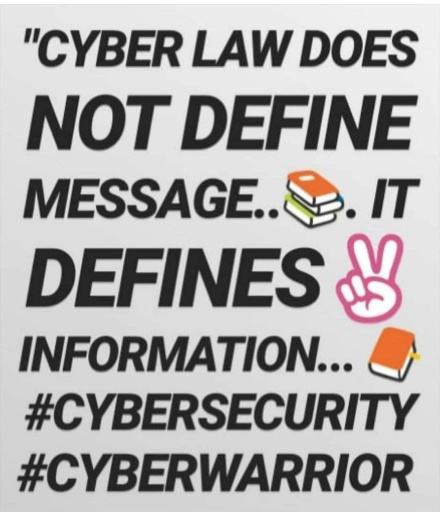
Cyber Law: Everything You Need to Know
What Is Cyber Law?
Cyber law is any law that applies to the internet and internet-related technologies. Cyber law is one of the newest areas of the legal system. This is because internet technology develops at such a rapid pace. Cyber law provides legal protections to people using the internet. This includes both businesses and everyday citizens. Understanding cyber law is of the utmost importance to anyone who uses the internet. Cyber Law has also been referred to as the “law of the internet.”
Categories of Cyber Crime
Generally, there are three major categories of cybercrimes that you need to know about. These categories include:
Crimes Against People.
While these crimes occur online, they affect the lives of actual people. Some of these crimes include cyber harassment and stalking, distribution of child pornography, various types of spoofing, credit card fraud, human trafficking, identity theft, and online related libel or slander.
Crimes Against Property.
Some online crimes happen against property, such as a computer or server. These crimes include DDOS attacks, hacking, virus transmission, cyber and typo squatting, computer vandalism, copyright infringement, and IPR violations.
Crimes Against Government.
When a cyber crime is committed against the government, it is considered an attack on that nation’s sovereignty and an act of war. Cyber crimes against the government include hacking, accessing confidential information, cyber warfare, cyber terrorism, and pirated software.
Most of these types of cyber crimes have been addressed by the IT ACT of 2000 and the IPC. Cyber crimes under the IT ACT include:
- Sec. 65, Tampering with Computer Source Documents.
- Sec. 66, Hacking Computer Systems and Data Alteration.
- Sec. 67, Publishing Obscene Information.
- Sec. 70, Unauthorized Access of Protected Systems.
- Sec. 72, Breach of Confidentiality and Privacy.
- Sec. 73, Publishing False Digital Signature Certificates.
Special Laws and Cyber crimes under the IPC include:
- Sending Threatening Messages by Email, Indian Penal Code (IPC) Sec. 503.
- Sending Defamatory Messages by Email, Indian Penal Code (IPC) Sec. 499
- Forgery of Electronic Records, Indian Penal Code (IPC) Sec. 463
- Bogus Websites & Cyber Fraud, Indian Penal Code (IPC) Sec. 420
- Email Spoofing, Indian Penal Code (IPC) Sec. 463
- Web-Jacking, Indian Penal Code (IPC) Sec. 383
- Email Abuse, Indian Penal Code (IPC) Sec. 500
Cyber Law Trends
Cyber law is increasing in importance every single year. This is because cyber crime is increasing. To fight these crimes, there have been recent trends in cyber law. These trends include the following:
- New and more stringent regulations.
- Reinforcing current laws.
- Increased awareness of privacy issues.
- Cloud computing.
- How virtual currency might be vulnerable to crime.
- Usage of data analytics.
Article By – Harshita C. Jadhav